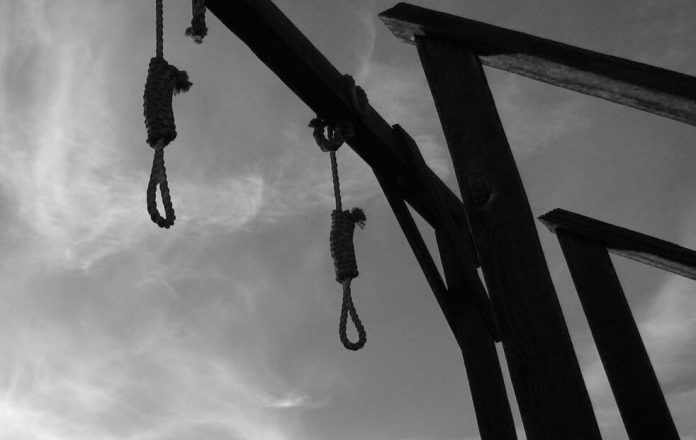This article is authored by Anvita Bhardwaj, currently pursuing B.A.LLB (Hons) from Symbiosis Law School, Noida. This article discusses the need and importance of the ban on the death penalty for mentally ill persons. It further talks about the recent change brought in the criminal justice system.
Table of Contents
Introduction
People suffering from mental illnesses are at a disadvantaged position when they face criminal charges and the situation for them is much worse when the charges result in a death sentence. There is always a stigma attached with accused/convicts that suffer serious mental illness. They are afraid as they are not understood by people and feel law and order may not be in their favour. These are the two factors that guide and affect such cases. Individuals suffering from severe mental illnesses are often coerced into giving confessions. They also cannot exercise their right to attorney properly as they face difficulty in comprehending their rights.
As a result, such individuals are at a greater risk of losing their lives to unfair sentences. International law condemns the execution of mentally ill persons but still many countries have not banned the same. The important considerations to be taken care of are that the defendant’s state of mind is such that it affects his culpability for the offence committed as well as his ability to assist his legal counsel. It is difficult for him to make a reasonable connection between his crime and the sentence imposed.
Also, it is possible that at the time of the commission of the offence he is not lucid; he is unable to understand what he’s doing and the consequences of his action. Until 2019, India was one of those countries that executed mentally ill people for capital crimes.
Mental illness and its effect on capital crime
The National Alliance on Mental Illness (USA) defines mental illness as a condition “that disrupts a person’s thinking, feeling, mood, ability to relate to others and daily functioning.” Having a mental illness should be considered as a mitigating factor for a person who is suffering. A broad spectrum of illnesses ranging from schizophrenia to depression and bipolarity are included under this term. It should be on the seriousness of the illness that a sentence is mitigated for the convict; otherwise, this provision can be easily misused.
The prominent situation where it is being used as a defence is declared insanity, a condition which is so severe that a person is not aware of his or her surroundings; he is out of touch with reality and cannot separate right from wrong. Insanity affects a capital case in the following ways:
- When, at the time of the commission of the offence, the defendant is insane, he can be found ‘not guilty’ on the grounds of insanity and institutionalized.
- For periods where the defendant is insane, the trial should be suspended until the defendant gains competency.
Also, executing an insane inmate has no purpose and should be termed unconstitutional. This is because the convict is not competent enough to understand the nature of his punishment, thus, the death penalty is rendered useless as it has neither a retributive effect nor a deterrent effect. However, while insanity can shield you from a death penalty, serious mental illness cannot.
To know more about death penalty in India and related landmark judgements, please watch the video below:
Position of the death penalty for convicts of serious mental illness in India
The earlier position in India
In India, Capital Punishment is only awarded by a Court in the “rarest of the rare” cases. The United Nations Commission on Human Rights urges all nation-states to not impose the death penalty on a person suffering from any mental disorder. It had repeatedly urged the Indian Government to enact legislation, domestic in nature, which brings the death penalty to practice in line with international legal standards.
The Indian Penal Code, under Section 84 of the Act exempts people with mental disorders who are not lucid at the time of committing the offence provided they do not understand the nature of the offence they are committing, however, this clause fails to recognise that the criminal justice system and the legal system should be sensitive towards the fact that the conditions persisting in the prisons that often cause mental health deterioration or exemplify it. The EU has also constantly remarked how the execution of a mentally ill person neglects the worth and dignity of human beings.
Under Article 21 of the Indian Constitution, a person’s life and personal liberty are to be protected (subject to reasonable restriction: execution via procedure established by law). The Tihar jail manual also states that the execution of a convict requires their mental and physical well being and therefore, a mentally ill person cannot be hanged to death.
The recent change in Indian scenario
In a landmark judgment, passed by the Supreme Court, India held that mental illness is now a fairground for revoking death penalty for death row inmates. This judgment was passed in April, in 2019. The bench consisted of Justice NV Ramana, Justice Mohan M. Shantanagoudar, and Justice Indira Banerjee. This judgment was delivered with respect to a convict who raped and murdered two minors in 1999. He suffered from serious mental illness but did not get an acquittal. For the commission of this “barbaric and brutal offence,” he was earlier sentenced to the death penalty. After taking his mental illness into consideration, the sentence was reduced to life imprisonment. The bench also instructed the State to ensure a proper and efficient mental healthcare system for him.
Case Brief
Facts
In this case, the accused is referred to as “X” to preserve his identity. In December 1999, he committed the rape and murder of two minor girls. The trial court found him guilty and in 2000, he was sentenced to the death penalty. In 2001, the case was appealed and the High Court upheld the sentence of the trial court, maintaining the death sentence. The High Court pointed out that the barbaric and brutal nature of the crime made it fall under the category of “rarest of the rare cases” and thus, the case fell within the death penalty. In 2008, a review petition was sent in the Supreme Court against the order of the High Court. The order was asked to be revised. Following this, a criminal miscellaneous petition was filed in 2015. This petition requested the re-opening of 2008’s review petition and the above-mentioned judgment’s verdict is a result of this petition.
Judgment
The Court, during the hearing, decided that there was no merit to the submissions as they were against the orders of the Court and decided to hear the case on two conditions, one of them being the severe mental illness of the accused ‘X’; a condition that was raised for the very first time in the review petition of 2008. The issue related to post conviction mental illness as stated by the judgment.
The phrase itself suggests that the convict has developed a mental illness after he has been convicted of the offence. The bench acknowledged that prisons are a difficult place to live in all around the world. The International Red Cross Society, The World Health Organization and other international bodies layout multiple circumstances wherein factors such as violence. Involuntary solitude, overcrowding, lack of contact with family, no privacy and inadequacy of health facilities, degrade the mental health of the prisoners day by day. Facts from other prominent cases were also considered wherein similar issues presented themselves. In the judgment, the court noted that in the case of ‘X’ there was a long period between the conviction and the crime committed and considered if the long delay was the cause of irreparable mental damage to the convict. This was disqualified as the ‘rarest of the rare case’ and under Section 20 (1) of the Mental Health Care Act, 2017 that provides the right to mentally ill people to live with dignity was referred to.
The bench stated that all humans possess a few inherent capacities even those for whom these capacities may not exist any longer due to reasons like disability or senility. In the event of an occurrence of such a disability, the individual may no longer understand the consequences of his actions and execution of such a person would lower the majesty of the law.
Prevention from misuse of the judgment
The Court recognized it easily that this judgment could be misused by many criminals who are death-row convicts and would want to plead a sentence reduction or acquittal. To prevent the same and safeguard the law the Court provided a basis for testing the severity of the mental illness of the convict. The judgment, in this very regard, stated that the bench notes the fact that no set disabilities or disorders which can be used to calculating the “severe mental illness” of a person; however, “a test of severity” can be made a deciding factor while considering a convict for exemption from the death penalty.
Secondly, the onus of proof to prove beyond a reasonable doubt that the accused is severely mentally ill lies on the defence counsel and not the prosecution. The test of severity, if passed, will become a mitigating factor. A medical professional would have to consider the illness to be “most serious” approving that the person was incapable of understanding the nature or purpose behind the imposition of the death penalty.
Directions laid down by the Apex Court
- While the Supreme Court noted that there is no set range of disorders and disabilities, the Court laid down the necessity of a “test of severity” for the convict to help lower courts recognize the illnesses that qualify for an exemption from the gallows.
- The bench also pointed out that India was under international obligations to not punish the mental health convicts with execution, therefore, the necessity for a test where only extreme cases are taken up for consideration.
- The Court identified the scope for misuse, cautioned against, “utilization of this dicta as a ruse to escape the gallows by pleading such defence even if such ailment is not of grave severity”.
- An assessment of the disability for which exemption is sought should be conducted by a multi-disciplinary committee of qualified doctors, among this team of professionals, there must be a professional with the expertise in the particular mental illness of the accused/convicted.
- The burden of proof will lie on the accused that he suffers from an illness of such nature.
- There should be ample evidence that the accused is demonstrative of the symptoms he suffers from due to the illness.
- The State has a choice where it may submit evidence that refutes the claim of the accused.
- Lastly, while giving these directions the Court mentioned that these are “instructive guidelines” and not a “definitive sentencing policy”, the trial court judge may use required discretion.
Conclusion
India has come a long way since the sentencing of Professor Devender Pal Singh Bhullar to death. Bhullar pleaded for mercy, citing that 11 years in prison took a serious toll on his mental health. His review petition was rejected by the Supreme Court. However, now the position of this law has completely changed. The society has evolved and is considerate towards the mental health of human beings. It was time the courts took due cognizance of the same. The execution of a mentally ill person is a cruel punishment. The criminal justice system is set up to ensure that convicts are punished in such a way that the crime, which affects the whole society, sufferers from a deterrent effect and people take extra care and caution in separating right from wrong, lawful from unlawful.
The length of the time a person spends in death row helps in the determination of his mental health conditions. To not mitigate the death penalty of a mentally ill convict would be a serious miscarriage of justice. In my opinion, not only mentally ill people but people with intellectual disabilities should also be considered to be exempted from the death penalty.
People with such conditions should be spared from the ultimate sanction of death and not from responsibility or punishment for their crimes. India should enact separate legislation with proper definitive terminology and definitive guidelines to meet the international legal standards. This domestic legislation is much needed in India and would bring reform in the criminal justice system.
References
- https://theprint.in/judiciary/sc-allows-post-conviction-mental-illness-to-be-a-factor-in-deciding-death-penalty-appeals/222232/
- https://clpr.org.in/blog/prof-bhullars-death-penalty-executing-the-mentally-ill/
LawSikho has created a telegram group for exchanging legal knowledge, referrals and various opportunities. You can click on this link and join:
 Serato DJ Crack 2025Serato DJ PRO Crack
Serato DJ Crack 2025Serato DJ PRO Crack











 Allow notifications
Allow notifications


